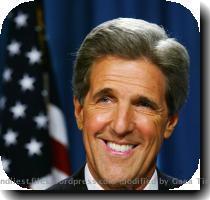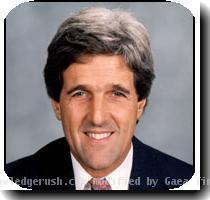Yemeni airstrikes target one of the most wanted al-Qaida figures for 2nd time in a week
By Ahmed Al-haj, APWednesday, January 20, 2010
New Yemen airstrike targets wanted al-Qaida figure
SAN’A, Yemen — Yemeni airstrikes on Wednesday targeted one of the country’s most wanted al-Qaida figures for the second time in a week, security officials said.
The target was Ayed al-Shabwani, who officials accuse of providing sanctuary for top al-Qaida figures in the country. Yemeni forces bombed a farm in a remote area east of the capital San’a — where a number of al-Qaida leaders are believed to be living. It was not immediately clear whether anyone was hurt.
The officials spoke on condition of anonymity because they were not allowed to talk to the media.
Al-Qaida in Yemen has become a pressing concern for U.S. security after the Nigerian Umar Farouk Abdulmutallab, who tried to blow up a Detroit-bound jetliner on Christmas, told FBI investigators the group provided him with explosives and training.
In the wake of the failed plot, Yemen intensified an offensive against al-Qaida with the help of U.S. counterterrorism aid and training.
Yemen, an impoverished country with a weak government whose authority does not extend far outside the capital, is Osama bin Laden’s ancestral homeland. The offshoot Al-Qaida in the Arabian Peninsula was formed a year ago when Yemen and Saudi militant groups merged.
Hundreds of militants are believed to be roaming lawless regions of the mountainous nation, sometimes under the protection of powerful local tribes that have their own grievances with the government.
Al-Shabwani hails from the al-Shabwani tribe and is believed to have his tribe’s protection. He is on the government’s list of most-wanted al-Qaida figures and has been implicated in several fatal attacks on security troops and police officers.
The airstrike hit Wadi Adeeda, 115 miles (185 kilometers) east of San’a in Mareb province, officials said, adding that al-Shabwani is in charge of sheltering operatives in that area.
Yemen’s government had reported that al-Shabwani was killed along with al-Qaida’s military chief Qassim al-Raimi and four other operatives of the group in an airstrike Friday on another province northeast of the capital.
Al-Qaida released a statement shortly afterward denying any of its men were killed in Friday raid. But it said some “brothers” — militant jargon for al-Qaida members — were wounded.
However, the casualties could not be independently verified because reporters are not allowed to travel to the lawless areas.
Friday’s bombing struck near the village of Yatama, about 118 miles (190 kilometers) northeast of San’a, in the province of Jouf.
Jouf and Mareb provinces are both al-Qaida strongholds.
Al-Raimi was described as one of Yemen’s most-wanted militants accused of plotting to assassinate the U.S. ambassador. Yemeni officials have said he escaped a government attack on him last month.
According to a new Senate report, U.S. law enforcement authorities believe as many as three dozen Americans who converted to Islam in prison have traveled to Yemen, possibly to train with al-Qaida.
A copy of the report, obtained by The Associated Press, said several of the individuals have “dropped off the radar” for weeks at a time and continue to carry U.S. passports. The assessment was written by staff working for Senate Foreign Relations Committee Chairman John Kerry, a Democrat.
Anwar al-Awlaki, a radical American-Yemeni Islamic cleric suspected of ties to al-Qaida is believed to be hiding in the remote Yemen mountains under his tribe’s protection.
U.S. and Yemeni officials say al-Awlaki, who once preached in mosques in California and northern Virginia and posted fiery English-language Internet sermons urging Muslims to fight in jihad, is now an active participant in al-Qaida’s offshoot in Yemen.
Al-Awlaki has been connected with the alleged perpetrators of two recent attacks on American soil: the Nov. 5 shooting rampage at the Fort Hood army base in Texas and the attempt to bomb the U.S. plane on Christmas.
His family and many members of his powerful Awalik tribe deny the 38-year-old is a member of al-Qaida, depicting him as a victim of Yemeni and U.S. persecution.
At the United Nations in New York on Wednesday, the U.N. Security Council committee that handles sanctions against Al-Qaida in the Arabian Peninsula, announced that the organization and two of its leaders — identified as Nasir al-Wahishi and Said al-Shihri — will be subject to binding international sanctions including freezes on assets and an international travel ban.
Tags: John Kerry, Middle East, North America, San'a, Sana'a, United States, Yemen

